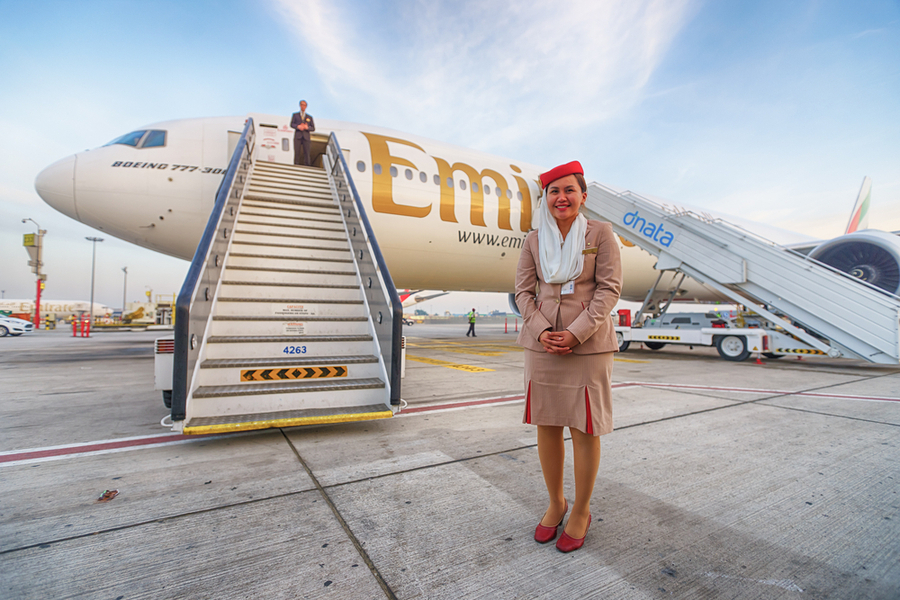Emirates might owe you money in light of the new Supreme Court ruling – AirHelp tells you how to claim
What actions should travellers and agencies be taking after the recent ruling on EC 261?
Contributors are not employed, compensated or governed by TDM, opinions and statements are from the contributor directly

We reported last week on the UK Supreme Court refusing an appeal from Emirates, related to compliance with a regulation that requires airlines to compensate passengers when flights are delayed.
“The issue of connecting flights outside of the EU has been a grey area.”
The case was in reference to Flight Compensation Regulation 261 (more simply, EC 261), legislation implemented in 2004 to protect passengers in the case of denied boarding, delayed flights and cancellations. The ruling, of course, happened many years ago but the issue of connecting flights outside of the EU has remained a grey area until now.
Emirates argued to exclude delays associated with connecting flights in Dubai. The EU ruling makes it clear that if a passenger originates in EU, the legislation applies until they reach their destination, inclusive of connecting flights on the originating carrier.
Emirates uses Dubai as an onward hub for APAC out of the EU so this is significant for them. The simple interpretation is that if you have a ticket on Emirates for an itinerary originating in the UK, your departing and connecting flight out of Dubai are covered. Emirates has not been honouring claims for delays or cancellations out of Dubai regardless of itinerary origin.
So, if you have flown with Emirates out of the UK / EU over the past three years and experienced a delay or cancellation in Dubai, Emirates might owe you money.
The options available to you
AirHelp is one of the leaders in assisting travellers to get compensation when flights are delayed or cancelled. I was able to connect with Christian Nielsen, AirHelp’s chief legal officer, to get you some answers on the actions you should take.

What does this announcement actually mean?
Key to understanding the Supreme Court’s decision is that if all flights have been booked under the same booking reference and are being operated by the same airline, the passenger can still claim compensation even if the disruption occurs outside of the EU.
We strongly encourage any Emirates passenger to check whether they are eligible for compensation. Passengers can claim their compensation until three years back from the disrupted flight.
Are there other global airlines that this ruling will impact directly or influence to begin providing disruption claims? If so, which ones?
The regulation EC 261 covers all flights that depart from any country in the EU, no matter what airline. Even if the airline is not based in the EU, it still has to pay the compensation for flight disruptions such as delays, cancellations or denied boarding.
Additionally, all EU airlines flying to the EU from other countries are also required to pay compensation according to Flight Compensation Regulation 261/2004. The ruling basically affects all airlines that are subject to the ruling. The new decision is confirming that EC 261 applies for connecting flights on the same airline and same booking reference.
What is Airhelp doing in response to this ruling?
We just launched a new tool which allows travellers to check their past travel history automatically for eligible flights by simply connecting their email inbox with the tool. We have already helped five million passengers claim for compensation worth €300 million in more than 30 countries

AirHelp was created to make airlines accountable for flight disruptions that could have been avoided as, unfortunately, not all of them fulfil their compensation duties.
Every year, we publish the AirHelp Score which is an airline and airport ranking that considers flight delays, cancellations and situations involving denied boarding, as well as the time it takes for airlines to pay out compensation and customer service. It gives airlines a measure of where they’re positioned and can be used as a reference point to encourage airlines to improve their service.

Are there any other insights you want to highlight?
To understand the importance of the Supreme Court’s decision, it is important to know that most of the other courts in European countries already follow the principle regarding compensation for missed connections, established by EC 261. Only in the UK was the case still not decided.
“Passengers are not only entitled to financial compensation but alternative transport”
Thanks to the ruling, the UK is now in line with the rest of the EU, which is great news for British air passengers. It’s worth knowing that, under EC 261, passengers are not only entitled to financial compensation but alternative transport. The airlines are also obliged to take care of you when stranded at the airport.
This situation often leads to a lot of additional expenses being covered, e.g. for food. If a passenger is stranded for an extended period of time at the airport, the carrier also must provide passengers with meals and refreshments during the delay, as well as access to communications, including telephones, fax machines and emails.
If the passenger is forced to stay overnight due to the delay, the flight company also should pay for the hotel, and transport to and from the airport.


Comments are closed.